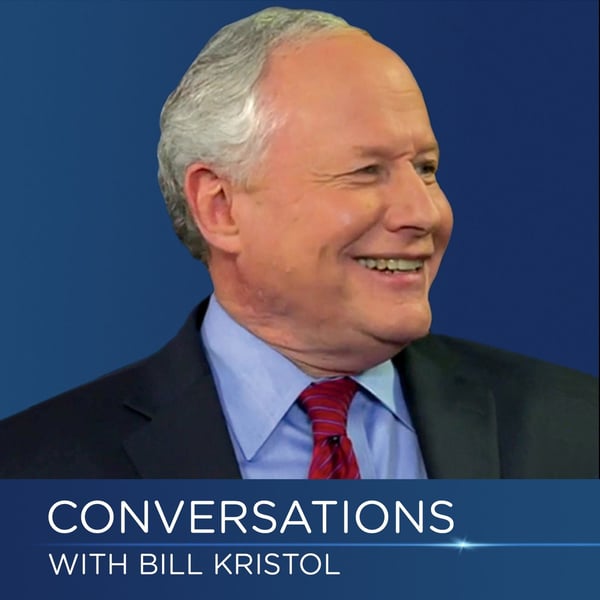Diana Schaub on Lincoln’s Political Thought: The Lyceum Address and The Gettysburg Address
Conversations with Bill Kristol
Conversations with Bill Kristol
4.7 • 1.7K Ratings
🗓️ 27 July 2019
⏱️ 83 minutes
🧾️ Download transcript
Summary
Transcript
Click on a timestamp to play from that location
| 0:00.0 | And the Hi, welcome to Conversations. I'm Bill Crystal and I'm very pleased to be |
| 0:19.1 | joined today by Dana Schaub, Professor of Political Science at the Law and University of Maryland, |
| 0:24.7 | author of terrific works on Lincoln, Frederick Douglas, Montesquieu, and others. |
| 0:31.2 | And we had a previous conversation by Frederick Douglas, which I highly recommend people watch either before or after this conversation in conjunction with this conversation. |
| 0:38.0 | The two greatest men of the 19th century, in my opinion. Is that right? |
| 0:42.0 | I think so, yeah. Greatest Americans or |
| 0:44.6 | greatest men? Yeah. Okay, you're gonna go with greatest men? I'm gonna go with |
| 0:49.8 | greatest men. I have to make my case for Tophil at some point for weekend. That's a good conversation. |
| 0:54.1 | Well they are awfully impressive and Lincoln of course is very daunting. How do we |
| 0:58.3 | cover him in one conversation? We can't but I guess we thought we might focus on three speeches the |
| 1:04.0 | Liseem speech he gives what he's 28 years old I think and then Gettysburg in |
| 1:08.8 | the second inaugural the two great speeches of his presidency and sort of what |
| 1:11.4 | he's trying to we can at least great surface of what he's trying to, we can at least |
| 1:13.2 | surface of what he's trying to accomplish in these speeches in terms of his |
| 1:17.0 | understanding of America, equality and so forth. So,ceam's speech? |
| 1:24.0 | He gives that when he's what 28 years old? |
| 1:27.0 | Yes, a young man, he's already an elected official, |
| 1:31.0 | he's serving his second term in the Illinois House and he's invited to give a |
| 1:35.3 | lecture as a kind of rising local dignitary. More well-known outsiders were also invited to give these addresses. |
| 1:44.6 | Emerson apparently made an appearance at the Springfield Lyceum. |
| 1:47.6 | We don't know whether Lincoln was in attendance at that or not. |
| 1:51.3 | But so. |
... |
Please login to see the full transcript.
Disclaimer: The podcast and artwork embedded on this page are from Conversations with Bill Kristol, and are the property of its owner and not affiliated with or endorsed by Tapesearch.
Generated transcripts are the property of Conversations with Bill Kristol and are distributed freely under the Fair Use doctrine. Transcripts generated by Tapesearch are not guaranteed to be accurate.
Copyright © Tapesearch 2025.

